Sweden Advises Citizens Against All Travel To Iran
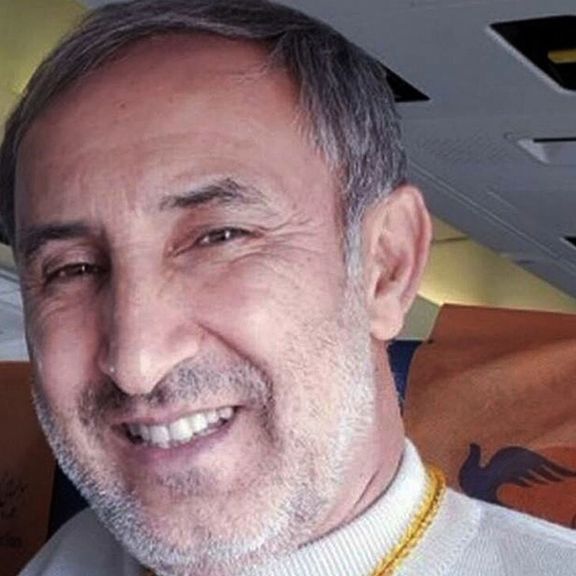
The Swedish Ministry of Foreign Affairs has advised its citizens against traveling to the Islamic Republic of Iran due to the security risks to foreigners.

The Swedish Ministry of Foreign Affairs has advised its citizens against traveling to the Islamic Republic of Iran due to the security risks to foreigners.
Ahead of the conclusion of a trial that has soured relations between Iran and Sweden, the ministry said in a statement on Thursday, "Due to the security situation, the Ministry of Foreign Affairs advises against all travel to Iran."
“In recent times…Iran has in various ways expressed its dissatisfaction with an ongoing trial against an Iranian citizen in Sweden,” the foreign ministry said. It had previously advised against all unnecessary travels.
Swedish prosecutors requested a life sentence for former Iranian prison guard, Hamid Noury (Nouri), on trial in Sweden for his role in the execution of up to 5,000 political prisoners in 1988, while Swedish-Iranian scientist Ahmad-Reza Djalali faces the death sentence in Iran after he was arrested on trumped-up charges of spying.
Sweden is probably worried that Iran may detain Swedish citizens to have more bargaining chips for the release of Noury, who was arrested in November 2019 while visiting Sweden. Sweden used the principle of universal jurisdiction to arrest and prosecute Noury, because the alleged crimes amounted to war crimes. His verdict is due on July 14.
Sweden on March 10 deported back to Iran two alleged Iranian agents who were arrested for links to a terrorist plot, instead of putting them on trial, since it does not want more tensions in its relations with Tehran.
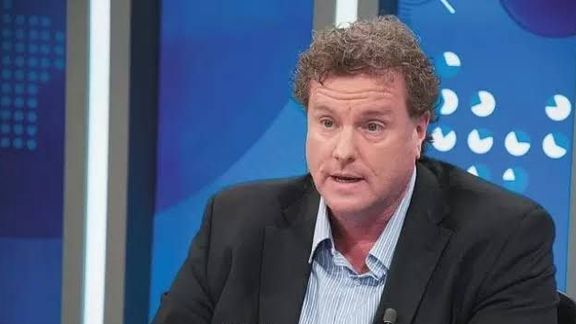
Gerardo Milman, an Argentine lawmaker, told Iran International that Iranians aboard a Venezuelan plane held in Buenos Aires planned “attacks on human targets.”
Speaking Thursday in Spanish to anchor Fardad Farahzad, Milman, who has pressed for information over the incident, disputed explanations given by both the Argentinian and Iranian governments.
Contrary to Iran’s claim June 13 that the plane was not owned by an Iranian company and that any Iranians aboard were instructors, Milman said the pilot was “a senior Qods (Quds) official, especially a member of the Ministry of Intelligence,” apparently suggesting he was a member of the Qods brigade, the extraterritorial arm of Iran’s Revolutionary Guards (IRGC).
Milman said the pilot, who had “fought in the war [1980-88] against Iraq, together with the current Minister of the Interior [Ahmad] Vahidi,” was a shareholder in the Iranian airline Mahan Air, which has been sanctioned by the US Treasury. Milman said the co-pilot, who was “even more problematic,” was using a false name.
Anibal Fernandez, Argentina’s security minister, said June 11 the government had immobilized at Ezeiza airport (Buenos Aires) a “Venezuelan plane sanctioned by the United States and withheld the passport of five Iranian crew members.”
While US sanctions have no force in Argentinian law, any supplier might be wary of punitive US action over supplying fuel. According to the Spanish-language website Infobae, the plane, minus the five Iranians, was subsequently denied permission to fly to Uruguay to refuel.
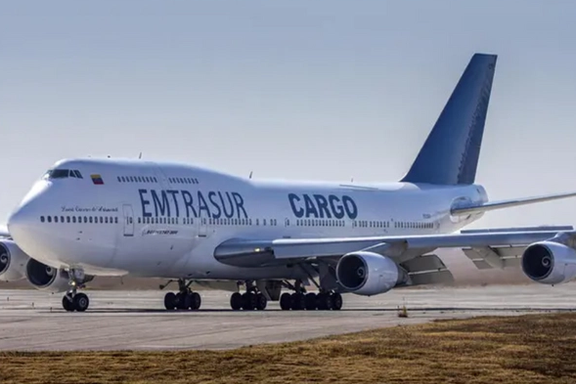
The plane had arrived in Argentina, from Mexico June 6, carrying automotive parts, but according to Argentinian media, an inspection found five Iranians aboard who, unlike at least 12 Venezuelans, were not on the passenger manifest. The Iranians’ passports were impounded – presumably on the grounds they were violating immigration rules – and they were assigned a hotel.
‘Photos of missiles’
Milman criticized Argentina’s President Alberto Fernandez, security ministry and intelligence chief for trying to portray “the Venezuelan-Iranian intelligence operation …[as] an air training operation.” He said action over immigration offenses ignored that the pilot’s phone contained “photos of missiles, aircrafts aimed at Israel, photos of war material aimed at confronting Israel in order to commit terrorist acts in the state of Israel.”
Milman told Iran International that the Argentinian government had aligned with “the Caracas-Tehran-Moscow regime” and alleged a “Venezuelan-Iranian intelligence operation that includes several elements in the region.” This included Querétaro, in Mexico, and the cooperation between Caracas and Tehran over manufacturing-armed drones. Milman alleged that the governor of a state in Venezuela where drones were made was now ambassador to Argentina.
“The truth is that everything has a very accurate correlation,” the member of parliament said. “My idea is that Iran seeks to consolidate with the Argentine government this trilogy with the regime of Caracas and with the regime of Teheran.” Milman suggested the plane provided “absolute proof that financing cells operate with respect to the Hezbollah situation…[and] a very well-known clan, which is the Barakat clan…[with] many members arrested for collaborating with international terrorism.”
Argentina in 2019 designated Hezbollah, the Lebanese Shiite militant organization, as a ‘terrorist group,’ citing its alleged role in two bombings, including one of a Jewish community center in 1994. Both Iran and Hezbollah deny involvement in the attack. The Barakat clan, originally from Lebanon, is based in the poorly policed mountainous region bestriding Argentina, Brazil and Paraguay.
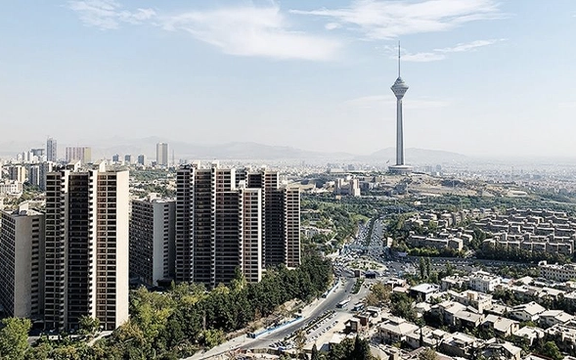
According to an annual report from the Economist, Tehran is among the bottom ten cities in the ranking of 173 cities in terms of the Global Liveability Index.
In the report published by the Economist intelligence unit -- the research and analysis division of The Economist -- on Thursday, Tehran is at the 163rd place of the list that quantifies the challenges to an individual's lifestyle in cities worldwide.
The study reviewed and assessed 173 cities across five broad categories of stability, healthcare, culture and environment, education and infrastructure.
In terms of stability and infrastructure, Tehran is worse than Douala in Cameroon, although in overall average Iran is one place higher. Considering culture and environment, Tehran is even worse than Libya’s Tripoli, Nigeria’s Lagos, and Syria’s Damascus, which are at the rock-bottom of the rankings.
The only category that saved Iran from languishing at the very bottom is healthcare that has 20 percent weight in the total score, but a closer look at the category reveals that the quality and availability of private healthcare is the decisive factor in the index. Tehran does have private health care but it is not affordable for ordinary Iranians, who are struggling to make ends meet due to above-50-percent inflation.
The Austrian capital, Vienna, has made a comeback as the world’s most liveable city as a rollback of covid-19 restrictions has translated into rankings resembling those seen before the pandemic. It is followed by Copenhagen in Denmark and Switzerland’s Zurich.
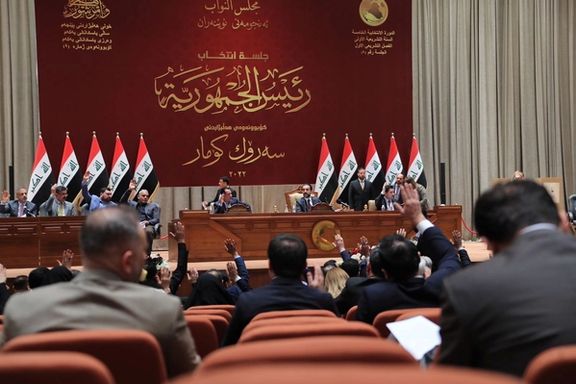
About two weeks after the mass resignation of the Sadrist bloc, Iraq's parliament swore in dozens of new lawmakers on Thursday, giving majority to Iran-backed politicians in the assembly.
A group of 73 parliamentarians loyal to the powerful Shiite cleric Moqtada al-Sadr resigned on June 12 upon his order after eight months of stalemate over forming a new government. Addition of the 64 new representatives means the influence of the parties supported by the Islamic Republic of Iran in the Iraqi parliament increased and they once again became the main force in the 329-seat parliament. Nine newly elected representatives were absent for unknown reasons.
"Following the Sadr lawmakers' resignation, we can confirm that we are the largest bloc in parliament with around 130 seats after the swearing in of the new lawmakers," Shiite lawmaker Ahmed Rubaie told reporters.
Sadr's party was the biggest winner in an October general election, and its success had raised the possibility that he could sideline his Iranian-backed rivals who had dominated politics in Iraq for years, but political disagreement among parties hindered parliament from electing a president and forming a government.
Sadr said on Wednesday that his decision to withdraw from Iraqi politics was prompted by pressure exerted by Iranian proxies on non-Shia members of his parliamentary coalition and on the Iraqi judiciary, but dismissed rumors that Iran itself had pressured him directly. “Iran this time did not exert any pressure on any Shiite party.”
Last week, Foreign Minister Fuad Hussein criticized Iran's interference in Iraq's internal affairs.
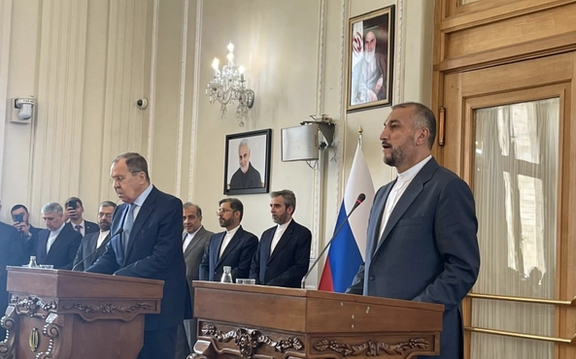
Hosting Russian counterpart Sergei Lavrov, Foreign Minister Hossein Amir-Abdollahian reiterated Thursday Iran’s support for a diplomatic end to the Ukraine war.
Amir-Abdollahian was speaking at a press conference alongside Lavrov, who arrived in Iran Wednesday on a two-day visit that appears to bring Moscow and Tehran closer. Talks have reportedly covered the 2015 Iran nuclear deal and boosting bilateral trade as the fall-out from Ukraine continues.
“We believe that American actions done through NATO are part of the crisis' causes,” Amir-Abdollahian said. “However, the Islamic Republic does not see war as a solution and welcomes political talks…”
Lavrov stressed the importance of adding “depth” to the “height” of existing Iran-Russia relations, and suggested “experts” should work on “ways to substantiate” the 20-year cooperation agreement in principle reached February, which some Iranian analysts argue has yielded few benefits. The Russian foreign minister also made an oblique remark on extending “the protection of intelligence,” probably referring to enhanced security cooperation.
‘Correct understanding’
The Russian foreign minister said he agreed with sentiments over Ukraine expressed Wednesday by President Ebrahim Raisi, who had warned of the necessity of being “active in the face of attempts to expand NATO’s influence in any part of the world, including in West Asia, the Caucasus and Central Asia.” Lavrov thanked Iran “for his correct understanding of the roots of this problem.”
While Russia, alongside China, voted against the June 8 resolution critical of Iran raised by the United States and three European states at the International Atomic Energy Agency (IAEA), Moscow’s efforts to discount exports – especially oil and steel– can have adverse consequences for Iran, including cutting its competitiveness in supplying China.
But any new pattern is unclear. According to Petro-Logistics, the oil trade analysts, Iran’s oil exports jumped from an average 461,000 barrels per day in May to 961,000 between June 1 and June 19. China has been easily Iran’s main crude market since the US in 2018 imposed ‘maximum pressure’ sanctions, threatening punitive action against third parties, when Washington left the 2015 nuclear deal, the Joint Comprehensive Plan of Action (JCPOA).
Reuters reported June 22 the arrival in China of a shipment of 2 million barrels of Iranian oil. Most of the latest cargoes, it said, were for state reserves and not, as had previously often been the case, purchases by small, independent refineries.
India’s ‘independent’ approach
Prior to receiving Lavrov in Tehran, Amir-Abdollahian June 8-10 visited India, which has not only resisted US and European calls to boycott Russian oil exports but increased its purchases to the extent Moscow became last month its second largest crude supplier, after Iraq.
Some analysts in India have welcomed the ‘independent’ approach of Prime Minister Narendra Modi, comparing it favorably with New Delhi’s decision in 2007 under US pressurenot to go ahead with a gas pipeline from Iran, a move that followed India voting at the IAEA in 2005 to refer Iran to the United Nations Security Council. India abstained on the June 8 vote censuring Iran at the IAEA governing board.
During Abdollahian’s visit, India’s Prime Minister Narenda Modi tweeted June 8, the day of the IAEA censure resolution: “Our relations [with Iran] have mutually benefited both the countries and have promoted regional security and prosperity.”
While Russia-India trade was around $13 billion in 2021, small relative to Moscow’s $750-billion trade with the European Union, some Russian analysts argue it will now increase rapidly and that projections of $30 billion by 2015 need upward revision. And while Iran’s small trade with Russia, though expanding, is unlikely to even come close to $25 billion by 2025, another aspect of post-Ukraine realignment may be Iran’s increasing role as trading hub between Russiaand its Asian markets, especially India.
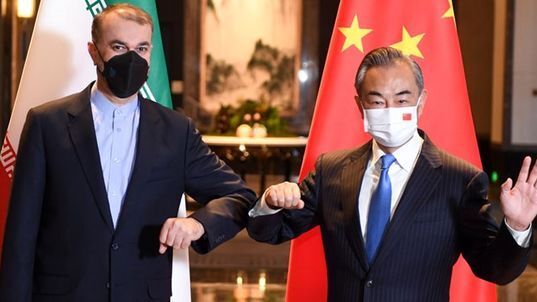
Chinese Foreign Minister Wang Yi says his country has urged the US to respond positively to Iran's "reasonable" concerns in the year-long nuclear talks.
Iran’s ambassador to China, Mohammad Keshavarzzadeh, said on Thursday that Wang made the remarks in a phone talk with Iranian Foreign Minister Hossein Amir-Abdollahian.
He said the BRICS summit – a conference attended by the heads of state of the five member states Brazil, Russia, India, China and South Africa -- the issue of Afghanistan as well as the latest developments in Iran nuclear talks were among the topics of the conversation.
While China supports pushing forward the Vienna negotiations to restore the 2015 nuclear deal, Beijing has kept close communication with Tehran since the talks stalled in March, reportedly because of Iran’s insistence for the removal of its Revolutionary Guard (IRGC) from the US list of Foreign Terrorist Organization (FTO).
Earlier in the week, Tehran again blamed Washington for lack of progress in talks, saying it is ready to resume negotiations to achieve a “good deal”. But a good deal for Iran means something very different from what the US says is possible.
The Biden Administration that came to office with a promise to restore the Obama-era Joint Comprehensive Plan of Action or JCPOA, says that it is ready to lift nuclear-related sanctions imposed by its predecessor but does not want to discuss “extraneous issues,” meaning sanctions imposed by the Trump administration over support for terrorism or other violations by Iran and Iranian entities.